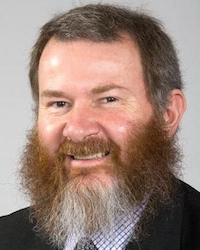Melbourne, AUSTRALIA
This event has concluded
From: 9:00 AM
Friday, 17 May, 2019
To: 12:30 PM
Friday, 17 May, 2019
TOTAL CPD FOR THIS EVENT: 3 HOURS
Event Details...
This event includes information on the following topics:
The intended audience for this event includes:
MIH – an update
Presented by Professor David Manton
Molar incisor hypomineralisation (MIH) affects around 15 per cent of the population, and one-third of those being severe. MIH can have profound effects on the prognosis of any restorative care provided for affected teeth and is related to sensitivity and dental anxiety. Appropriate early diagnosis and treatment planning is imperative to improve treatment outcomes. Diagnosis, treatment planning and recent research will be discussed.
At the end of this session, participants will be able to:
- Diagnose MIH and similar developmental defects
- Create treatment plans for affected individuals
- Understand how to provide restorative care for teeth with MIH
- Be aware of recent research about MIH.
An update on restoring primary teeth
Presented by Dr Susan Hinckfuss
New methods, materials and treatment options are changing patient expectations for restoration of primary teeth. Restoring the primary teeth involves different techniques and materials than restoring permanent teeth for successful treatment outcomes. This lecture will discuss the options for restoring primary teeth, advantages and disadvantages of various restorative materials and techniques and factors involved in diagnosis and treatment planning.
At the end of this session, participants will be able to:
- Identify how restoring primary teeth is different to restoring permanent teeth
- Recognise new approaches to restoring primary teeth
- Understand the advantages and disadvantages of various methods of restoring primary teeth
- Choose the most appropriate restoration for a primary tooth.
Pulp therapies in primary and young permanent teeth
Presented by Dr Jane Lee
Management of grossly carious or traumatised primary teeth is an important aspect of dental care in the paediatric population. The primary objective of pulp therapy is to maintain the health of the teeth and their supporting structures. When treating the young permanent dentition, the aim is to preserve the pulp to allow continuing apexogenesis. It is essential that clinicians are trained and skilled in selecting and undertaking the most appropriate treatment for carious or traumatised primary teeth and young permanent teeth.
At the end of this session, participants will be able to:
- Diagnose pulpal status in primary and young permanent teeth
- Identify teeth that may require pulp therapy
- Understand how to perform a pulpotomy and pulpectomy
- Recognise children who may benefit from pulp therapy.
Speakers at this event...

Dr David J Manton
BDSc (Melb), MDSc (Melb), PhD (Melb), FRACDS, FICD
Professor David Manton Graduated BDSc (Melb) in 1984 and worked in general practice until 1991 when he undertook an MDSc in Paediatric Dentistry. He was dental advisor to the Federal Government fro...


Venue for Event...
Rydges Melbourne
186 Exhibition StreetMelbourne VIC 3000
AUSTRALIA Phone: +61-3-9662-0511
www.rydges.com/melbourne
Event Organiser...
Australian Dental Association Victorian Branch Inc
Level 310 Yarra Street
South Yarra VIC 3141
AUSTRALIA Phone: +61388254600
adavb.org
Speakers at this event...

Dr David J Manton
BDSc (Melb), MDSc (Melb), PhD (Melb), FRACDS, FICDProfessor David Manton Graduated BDSc (Melb) in 1984 and worked in general practice until 1991 when he undertook an MDSc in Paediatric Dentistry. He was dental advisor to the Federal Government fro...







